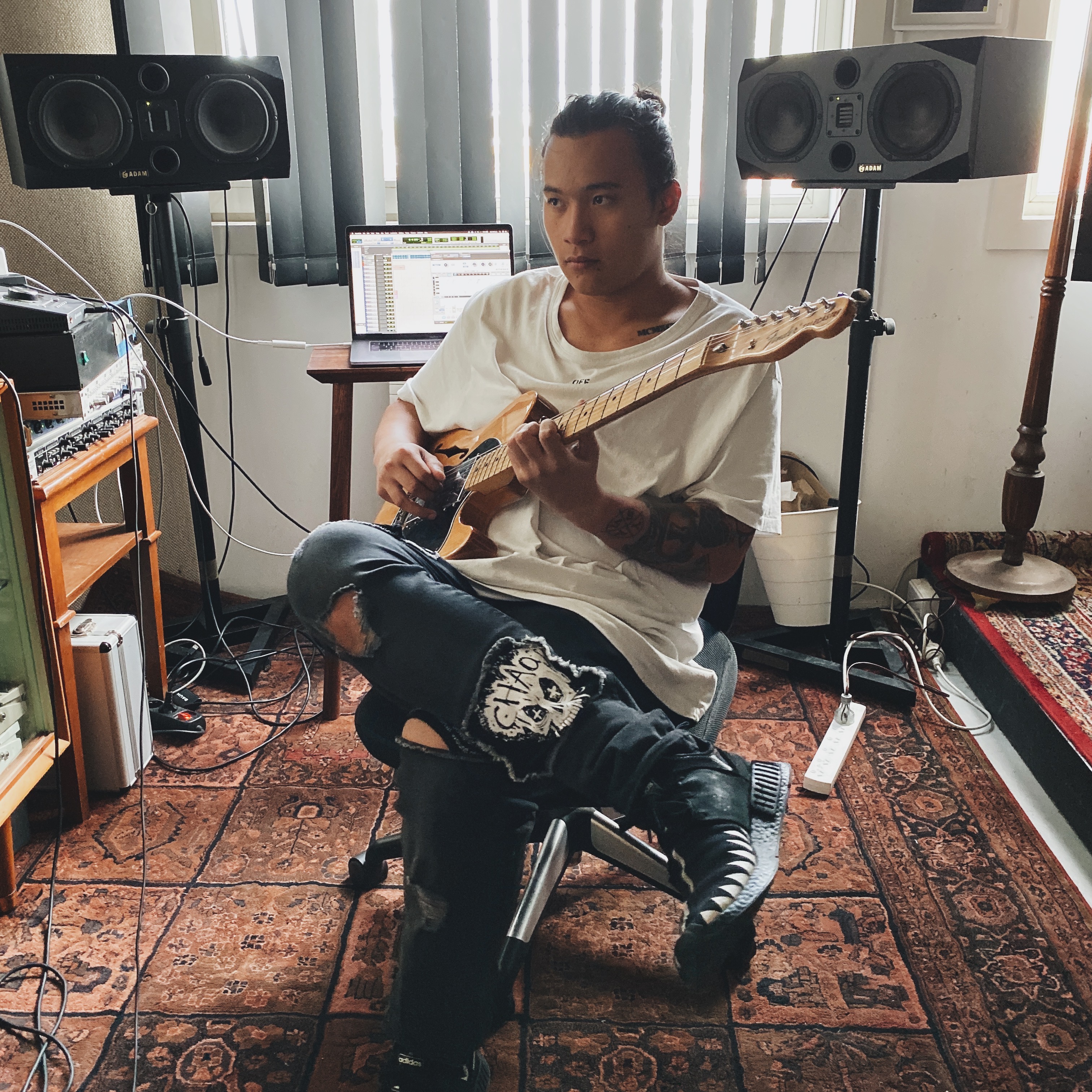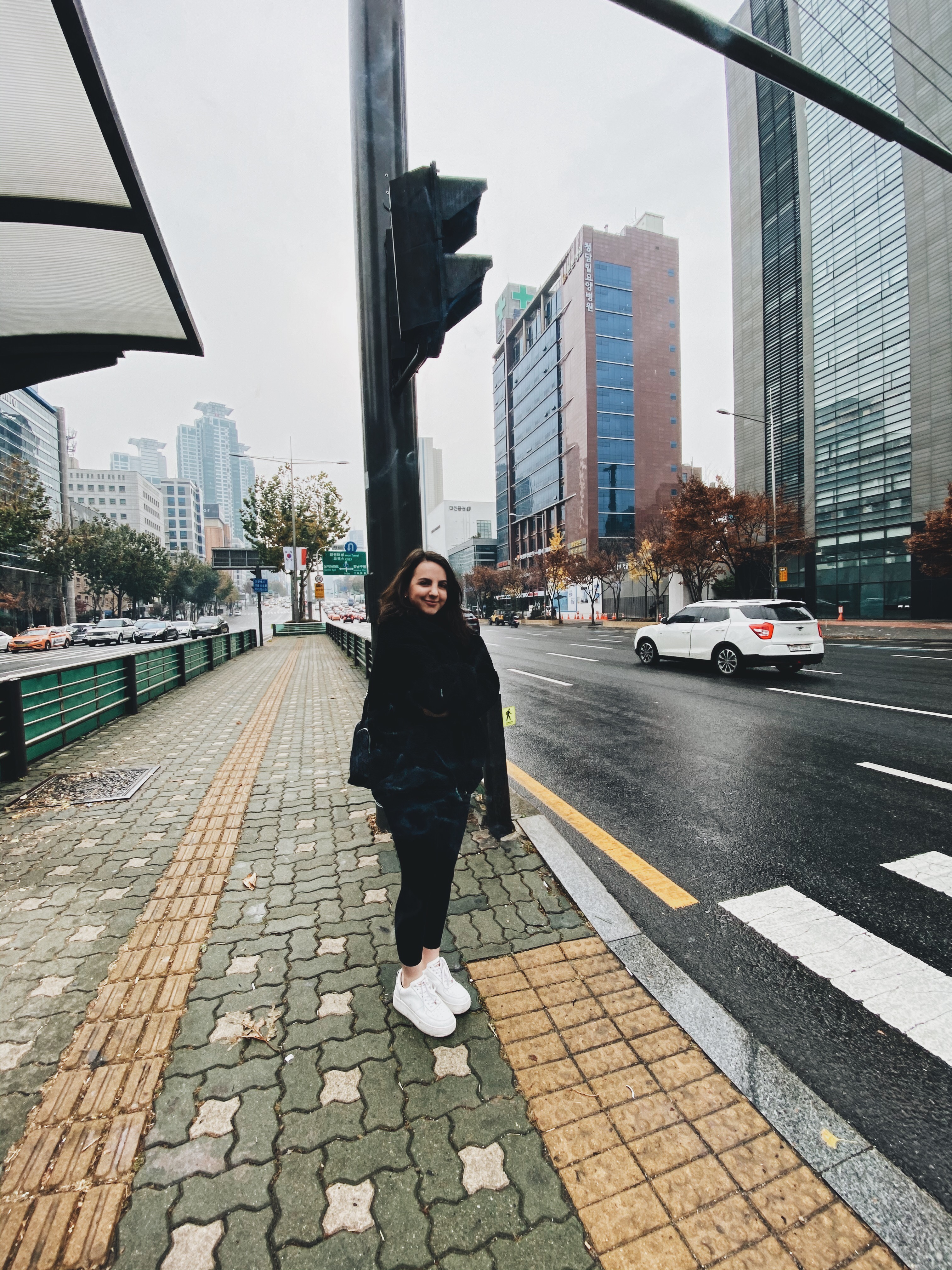Matt Tanner on how Native Tongue plugged into the K-Pop & J-Pop $5bn pipeline

Pictured: Matt Tanner
Australian/New Zealand-based Native Tongue Music Publishing has found a lucrative niche in the US$5 billion K-Pop and J-Pop markets.
Over the past 18 months, its Australian roster scored writing shares on about 6.5 million physical album sales, 1.5 billion+ digital single streams, 400 million YouTube streams and 20+ platinum certifications, predominantly in those home markets.
These have included best-selling girl groups such as Korea’s AESPA and Japan’s NiziU; the Warner Music signed TWICE; seven-piece K-Pop act ENHYPEN; 13-member SEVENTEEN who’re closest sales rivals to BTS; and the Sony Music-signed Japanese boy band SixTONES.
Matt Tanner, Melbourne-based head of creative services, says the team has been playing the long game.
“A lot of time spent learning through being present in those markets and getting a grasp of the skillset required by songwriters to cut through.
“We have spent a number of years building relationships and being able to foster the songwriting talent into those relationships.”
Native Tongue has clocked up a number of achievements in Asia – including five #1 records and two #1 singles in Japan, and a further five #1 records in Korea. But it’s also spilled into western markets, with three #1 records on the Billboard World Album Chart and four Top 20 entries on the Billboard Top 200.
2022 kicked off in a strong way, with SixTONES and ENHYPEN landing back-to-back #1 albums in Japan in the first two weeks.
Native Tongue writers Tim Tan and Ciara Muscat contributed to the lead single ‘Tamed -Dashed’ on ENHYPEN’s 1.2 million selling Dimension Dilemma album from October 2021.
The album was then repackaged into a longer version, Dimension: Answer, which came out in January 2022. ‘Tamed-Dashed’ was on the new version – which is already closing in on 2 million global sales – as was another track they contributed to ‘Blessed-Cursed’.
Both the original album and the repackage were #1 in Korea and Japan in the week of release and the original debuted at #11 on the US Billboard 200 and charted in half a dozen other territories.
The two also had credits on ‘Sweet Bomb’ by NiziU, while Muscat penned ‘Strawberry Moon’ by TWICE which charted in Japan and the US.
Songwriter royalties are “substantial,” Tanner confirms, “especially given the volume of physical units being sold, and the long trailing list of releases that often include repackages, best of releases and live concert DVDs”.
“But K-Pop and J-Pop are disparate, while both are heavy on physical sales, one is significantly more driven by streams internationally,” he adds.
“They’re both quite different in terms of how the industries are structured and how the roles that songwriters, publishers and A&Rs play out in each.”
Tanner lived in Japan in the ‘90s, working for a promoter and tour managing L7, Supersuckers, Rocket From The Crypt and Fugazi.
He returned to Australia to run the promoter’s tours here, and was an artist manager before joining Native Tongue in 2010.
Four years later, he began taking Native Tongue into those markets, making his first A&R reconnaissance trip and building up networks.
“My strategy was to find writers who understood the music and had the drive to really put their heads down and write a lot of music.
“I really needed writers who were almost single minded in how they approached writing for K-Pop and J-Pop.”
He realised it couldn’t be a part-time commitment.
“It wasn’t something you could dip in and out of.
“It wasn’t necessary that they spoke the languages, but certainly a willingness to learn about cultural sensitivities and adapt to how writers collaborate was high on the list.”

Tim Tan
Tan began writing in high school in Perth, listening mostly to post-punk pop metal.
He then came under K-Pop’s glow, after noticing that both styles of music shared a craziness in arrangements and rhythmic freedom.
He moved to Sydney to further his career, and contacted Native Tongue.
Tanner was impressed by how Tan had taught himself to speak Korean and wants to live Seoul one day and immerse himself in the culture.
This attitude made it easier for Native Tongue to pitch collabs with South Korean K-Pop creatives.
Tan, now 25, has a catalogue of 250 songs, with six recorded last year and one already in 2022.
“There are a lot of K-Pop groups launching this year, so I’m working on songs for a lot of them, I’m really pumped,” he reveals.
Writing for K-Pop means a different approach.
With Australian acts such as Jaguar Jonze and his own R&B lo-fi pop band Outfit, it’s about feeling out the spirit and message of the artist in a room and conveying that in the song.
K-Pop tracks are submitted fully-developed.
“They generally have four to 12 members in a group, so musically the energy is a lot higher, a lot more about the rhythmic value and the melodic chord structures.
“It’s definitely a different shift. The story comes secondary. They have people who independently work on the lyric side of things.”

Ciara Muscat in Seoul
Ciara Muscat (AKA Keeks)’s first cut was with NiziU.
After she and Tan began writing together after meeting at an Native Tongue Writing Camp, their ‘Take A Picture’ for NiziU reached #1 in Japan.
Grammy-nominated LA-based Steve Rusch, who generated 500 million streams writing and producing for Clinton Kane, landed his first K-Pop cut in 2022 with ‘Good Times’ (with Thom Macken) on the #1 SixTONES album City.
NSW Central Coast-raised Aston entered the K-Pop sphere unexpectedly when AESPA covered her 2019 single ‘Next Level’ two years later.
It became a huge track for AESPA in their home territory and set them up for the Savage mini-album becoming the highest selling K-Pop girl group album of all time.
Aston also co-wrote with Tan, ‘Iconic’ on that release, and later penned the single ‘JSB In Black’ for Japanese artist Sandaime Japanese Soul Brothers.
Melbourne-based New Haven, fresh from ‘#1’ on Imagine Dragons’ latest, has songs recorded by J-Pop acts on the way.
To expand Native Tongue’s relationship with K-Pop and J-Pop, Tanner has a main priority: “To have our writers spending more time on ground in both Seoul and Tokyo.”
“Obviously, it has been next to impossible over the past two years, but we’re starting to see how we can make it happen,” he says.
“Tim Tan and Ciara Muscat had both spent several months in Seoul and Tokyo just before COVID hit and they have both managed to really keep up their incredible output even in physical absence, so we’re looking forward to having them back in those markets.
“Aston and New Haven haven’t spent time in studios on ground in those markets yet, but they have established a lot of creative relationships that we’re looking forward to solidifying this year.”






























